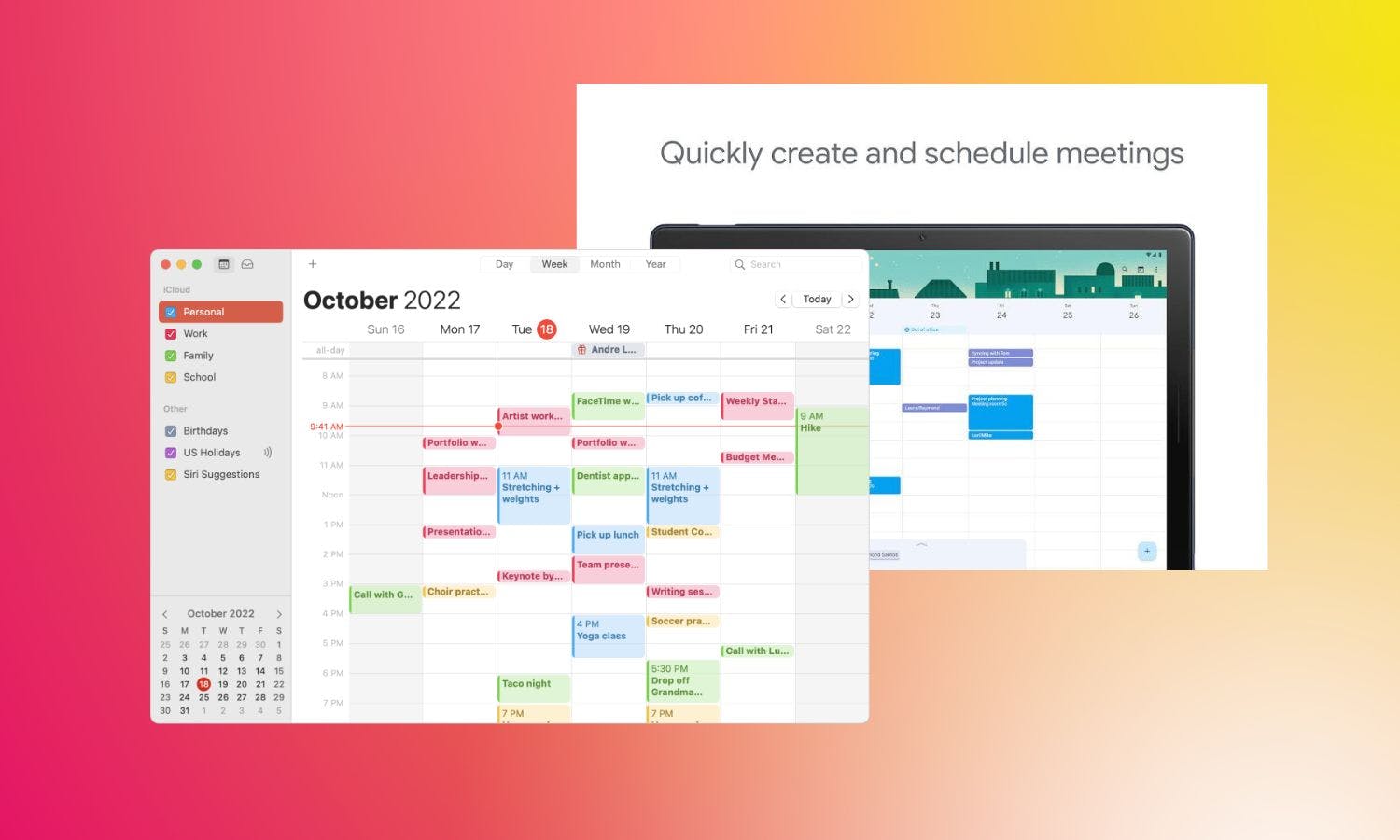Whether you need a calendar that's best for sharing or one that you can customize to make it fully your own, these two industry heavyweights come packed with plenty of features that make them a popular choice, not to mention the convenience factor. Apple Calendar and Google Calendar are two of the most recognizable applications commonly found pre-installed on respective devices already.
It is worth noting, however, that there are certainly more than two great calendar apps out there, especially if you’re a power user looking for a complete solution. If you want a broad analysis of the current calendar landscape, check out the best calendar apps for iPhone for a deeper dive.
Apple Calendar and Google Calendar apps have similar strengths and broad appeal but there are also some big differentiators and dealbreakers for both. Apple Calendar is exclusive to Apple devices whereas Google Calendar is more device agnostic. The best calendar app for you will depend on your device, priorities, and preferences.
What is Google Calendar?
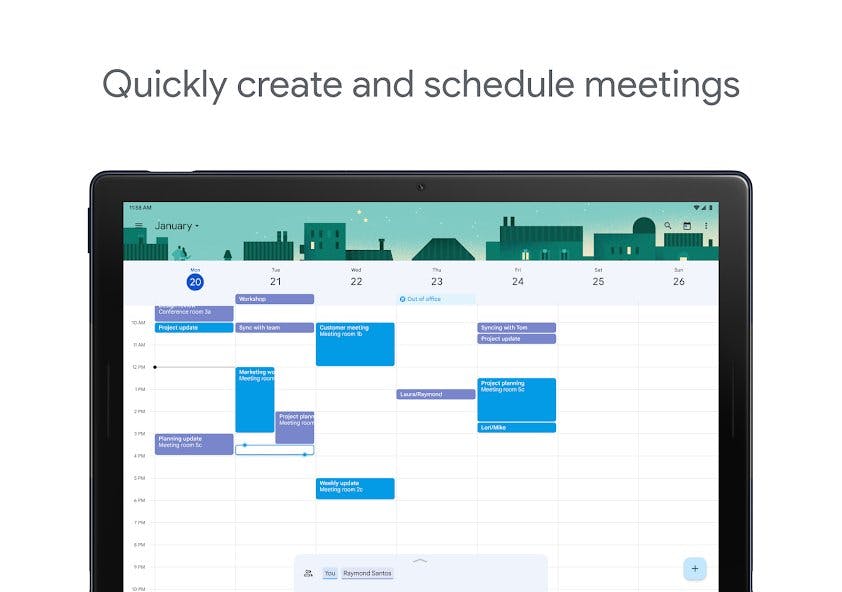
Google
Google Calendar is a free online calendar app developed by Google and launched in 2006. The app allows users to create and manage events, tasks, and appointments and easily share them with others. Google Calendar is available on web browsers or mobile apps for iOS and Android.
Google Calendar allows users to create multiple calendars within their account to separate things like work and personal events. These separate calendars can be color-coded and have specific reminders and notifications so you can visualize your schedule. Calendar views include agenda view, day view, week view, and month view. The app is seamlessly integrated with all Google products like Maps, Gmail, Meet, and Drive to manage all the information tied to your events and schedule.
Google Calendar: At a glance
Key features: Create and manage events, multiple calendars, Syncs across devices, seamless Google app integrations, Availability sharing
Calendar views: Schedule, day, week, month
Best for: Individuals and businesses that also use Google applications for email and file management
Cost: Free
Pros of Google Calendar
Availability sharing
Sharing calendars with others makes it so easy to see and schedule meetings when everyone is available. Google Calendar offers a “Find a Time” feature to help you quickly find the openings in everyone’s schedule and instantly book. Privacy controls are also built in to help you keep meeting details private when necessary. You can choose to share a calendar with meeting details or without, and you can also set privacy settings on specific meetings as needed.
Managing events
Events can come with a meeting link or be tied to a specific location. You can also create recurring events for specific cadences or periods of time. Event Details provide a place to give context for your meeting attendees or leave notes for yourself, link to relevant documents, and more.
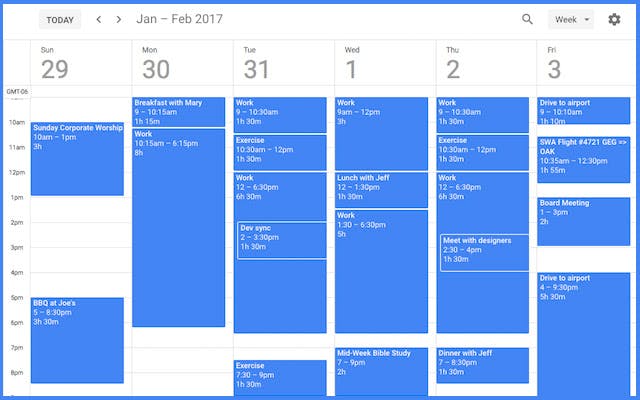
Google
Multiple calendars
Google Calendar allows users to create multiple calendars and manage different parts of their schedules in one place. Use cases for this include things like an OOO calendar view, editorial calendars, personal calendars, holidays, and birthdays.
Seamless integrations
Gmail users get the benefit of the full Google Suite when using Google Calendar. The experience on mobile and desktop are both user-friendly and intuitive, but users unlock even better integrations on desktop. The right-hand nav bar in Gmail and Google Drive apps lets you quickly create events and attach whichever email, doc, or spreadsheet you’re working on to the event. It’s also convenient to link Google Maps to your events and launch driving or commuting directions directly from your calendar.
Cons of Google Calendar
Privacy concerns
There’s an old saying in tech that if the product is free, you are the product. Google makes a ton of money on advertising and the company collects information about you to serve up more relevant ads. That doesn’t sit well with a lot of people who find ads intrusive. Google Calendar collects information about your events including dates, times, locations, and notes, and may use that data to create targeted ads or even sell it to third parties.
Limited customization
What you gain in intuitiveness and user-friendly interface you sacrifice in customization. Google Calendar offers some customization options, but some users may find them limited. For instance, users cannot customize the calendar layout or add advanced features without relying on third-party tools, which may introduce new privacy concerns.
Potential compatibility issues
Google Calendar works best with the Google Suite, which poses issues if you use a different email client. Ahem, looking at you, ProtonMail users. Issues can arise with syncing your events, language support, and limited features.
What is Apple Calendar?
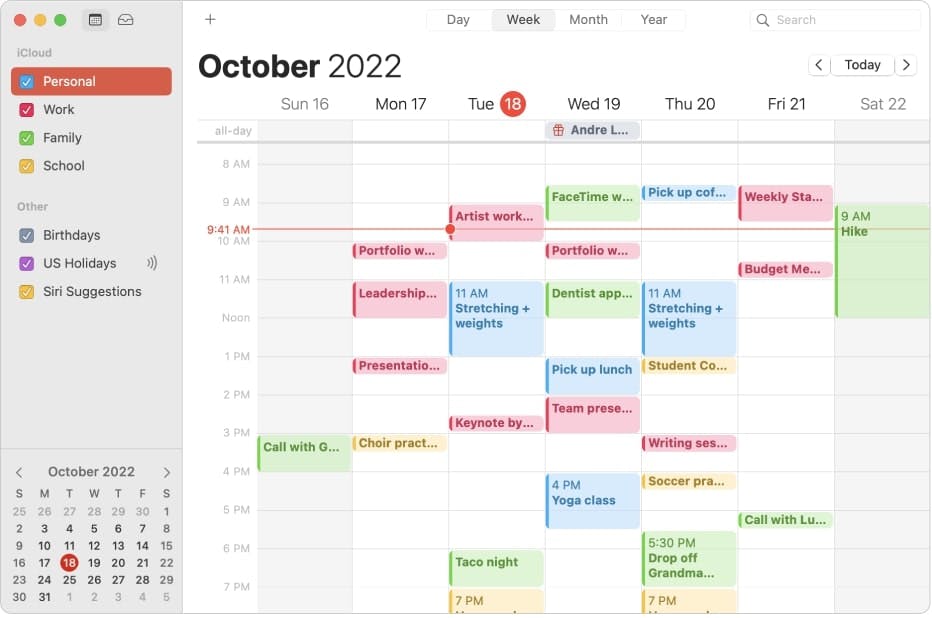
Apple
Apple Calendar is a free calendar application developed by Apple. The calendar is available on all Apple devices from Mac to Apple Watch. The app lets users schedule and manage events, appointments, and reminders and sync them across all Apple devices using iCloud.
Apple Calendar has a variety of features including managing multiple calendars, setting reminders, inviting and sharing events with other Apple users (more on this later), and integrating with other Apple apps like Maps and Siri (more on Siri later!). Apple Calendar is a convenient tool for Apple users who need to manage their calendars on the go. Apple Calendar can sync with external calendar apps to keep all your scheduled events in one place.
Apple Calendar: At a glance
Key features: Create and manage events, multiple calendars, Syncs across Apple devices, Shared Calendars, Reminders and notifications, Travel Time
Calendar views: Day, week, month, and year
Best for: Apple users
Cost: Free
Pros of Apple Calendar
Siri integration
If you use Siri on iPhone you can quickly and easily create reminders and events in Apple Calendar. Voice is a powerful tool for calendar efficiency and Apple does this exceptionally well.
Natural language event creation
That text convo with your bestie about your physics test tomorrow suddenly has a link underlining “test tomorrow.” That’s natural language event creation and it’s a favorite feature for Apple Calendar lovers! If you reference a time in your natural conversations, Apple recognizes this as an opportunity to help you set a reminder for that event with one click.
Shared calendars
The truest test of any relationship is whether or not you share calendars. Shared calendars on Apple devices can be a useful way for groups of people to coordinate schedules and plan events together. By allowing multiple users to view and edit the same calendar, users can avoid scheduling conflicts and ensure that everyone is on the same page.
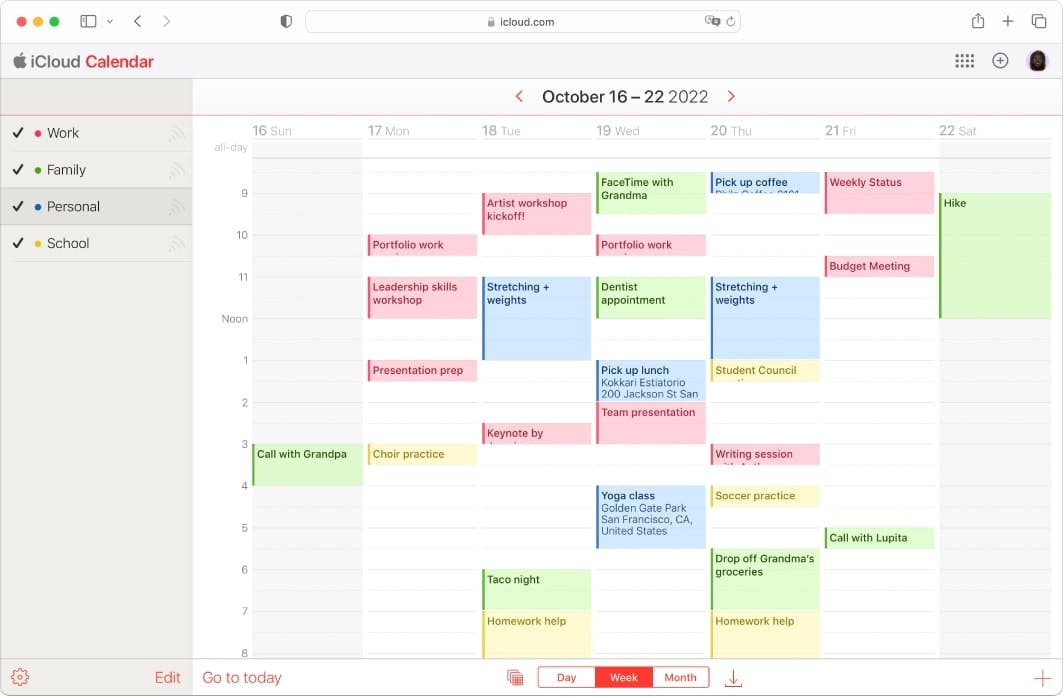
Apple
Cons of Apple Calendar
Only on Apple devices
Android users need not apply. Apple Calendar is exclusively available on Apple devices. This becomes a problem when an Apple user wants to collaborate with an Android user.
Limited customizations
Customizing color coding, event icons, themes, and notifications are all somewhat limited in Apple Calendar. These limitations aren’t big enough to create a bad user experience but power users might want more from their calendar apps.
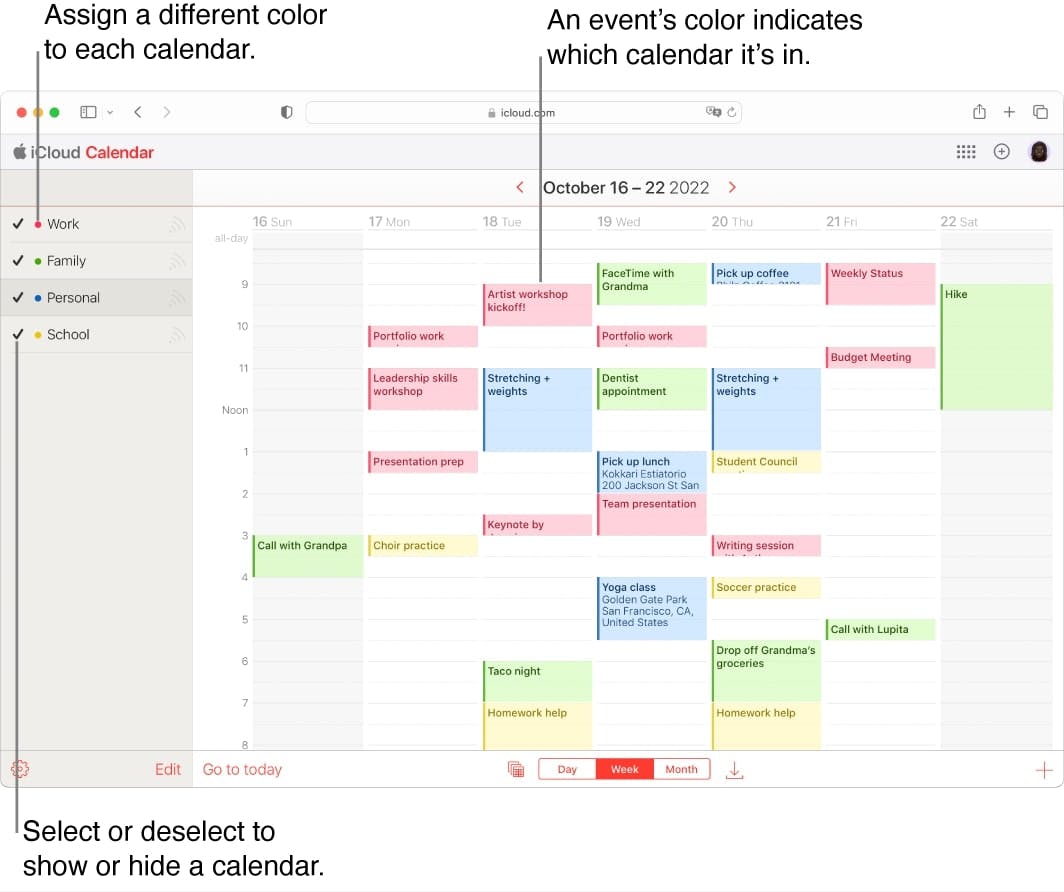
Apple
What are the similarities between Apple Calendar and Google Calendar?
Both Apple Calendar and Google Calendar have basic scheduling functionalities to create, edit and manage events, set reminders, and review your schedule by day, week, or month. Both apps can be synced and accessed across devices easily, and both apps support shared calendars and multiple calendars.
Google Calendar vs Apple Calendar: Which is better?
Many people are using a combination of both for different reasons. Often, users like to link their Google (or Outlook!) calendars to their Apple Calendar and use Apple to manage the notifications and take advantage of natural language input options on their iPhones and iPads.
Google Calendar appears to be the favorite tool for sending invitations to others. Many people use Google for work and their personal lives so achieving work-life balance is easier when you can layer those schedules on top of each other. Some people swear by shared Apple Calendars. My takeaway from all this is it’s hard to choose which is better when you can have both and let them work their magic together.
Ultimately, if you want to use just one app, the choice between the two comes down to personal preference and the specific needs of the individual user.
